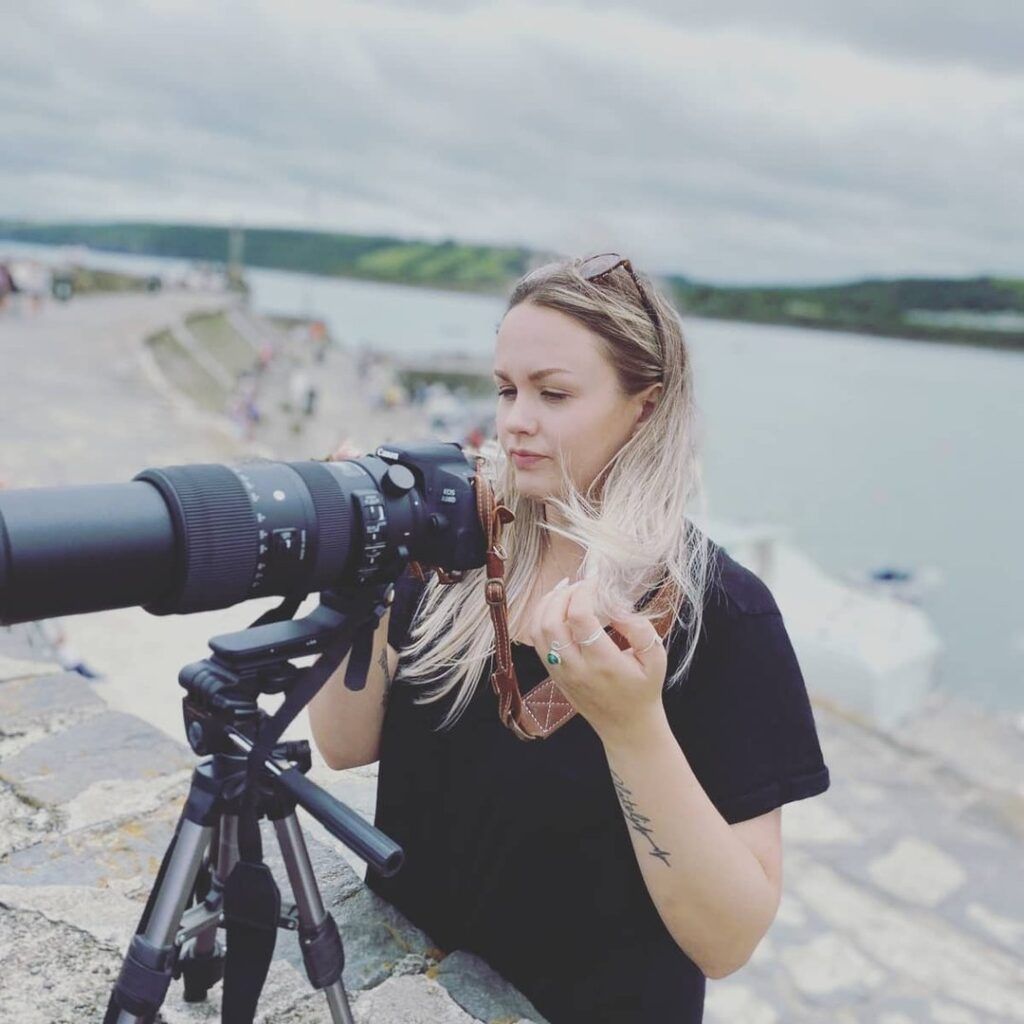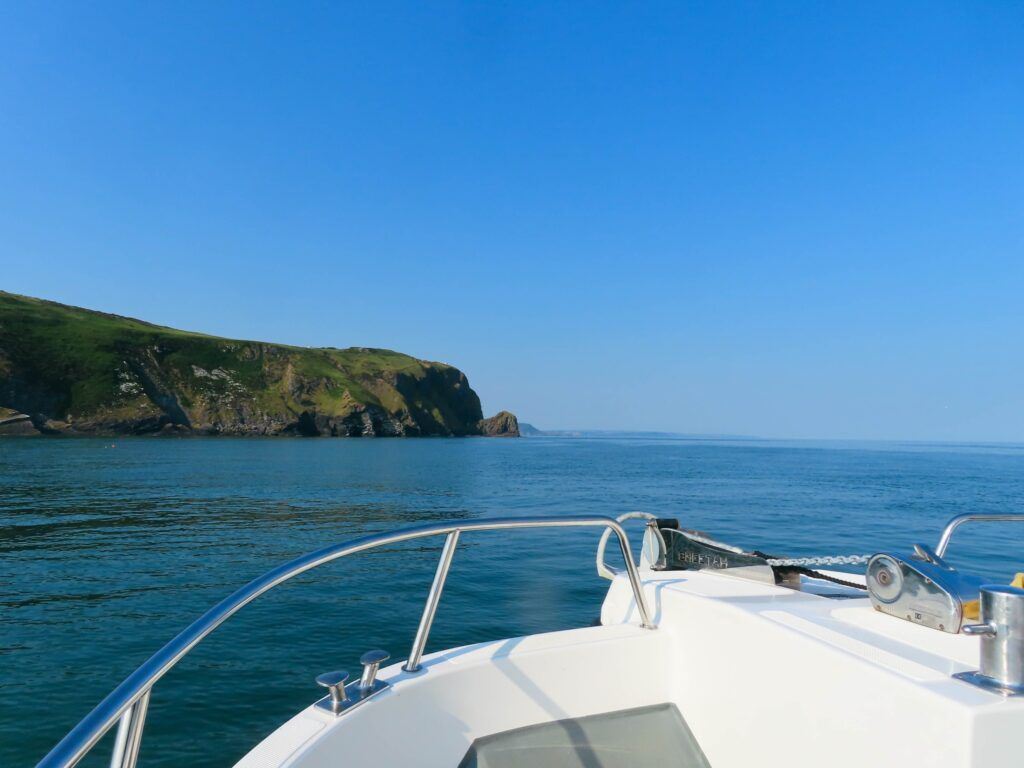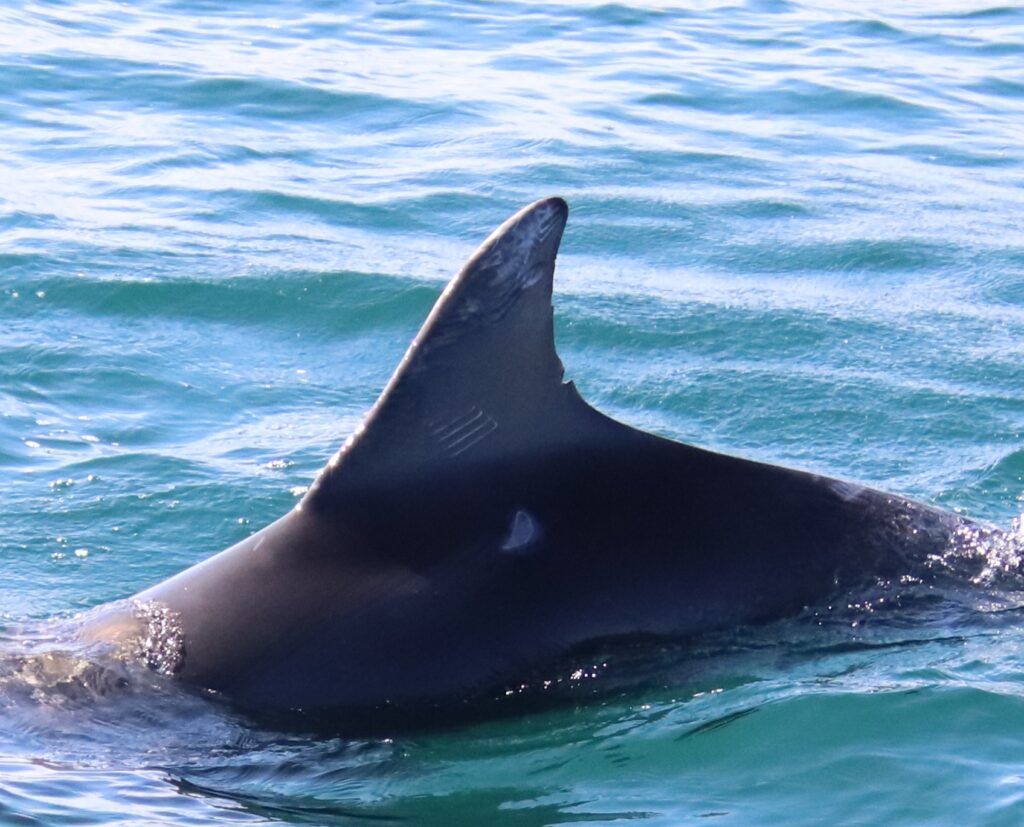Meet Claudia Afeltra: PTES intern
In this series, we chat to the dedicated staff members, conservation partners and volunteers at PTES. We find out why each of them chose a career in wildlife conservation, what they find rewarding about their work and what they love most about what they do.
Claudia Afeltra
2021 PTES intern and current Communications and Outreach Officer at Sea Watch Foundation
Why did you decide to go into wildlife conservation?
I chose a career in conservation due to my upbringing in South Africa, where I was fortunate to explore the country’s national parks and develop a profound appreciation for wildlife. This early exposure fuelled my passion for animals and their well-being. As I pursued my master’s degree, my perspective on conservation expanded, and I began to recognise the broader impact of this field.
Witnessing the significant implications of conservation work motivated me to dedicate myself to this cause. I find immense fulfilment in knowing that my daily efforts can contribute to making a tangible difference. Moreover, I am particularly inspired by the opportunity to engage with young individuals, igniting their passion for conservation and witnessing their eagerness to take action. I eagerly anticipate each day in my job, as it allows me to combine my expertise with my genuine enthusiasm for protecting our natural world.
What has been your proudest moment do far?
I felt immensely proud when I received the PTES internship grant to carry out my photo ID project with the Sea Watch Foundation. This achievement holds great significance for me as it recognises my dedication to marine conservation. The grant validates the importance of my project and motivates me to continue making a positive impact on the preservation of marine life. This recognition has inspired me to approach my work with even more enthusiasm and determination, knowing that esteemed organisations support and appreciate my efforts.
What’s your role and what is the most rewarding part of it?
As the Communications and Outreach Officer at the Sea Watch Foundation, my primary responsibility revolves around engaging with the public and raising awareness about marine conservation. The most fulfilling aspect of my role is the opportunity to interact with individuals from diverse backgrounds and educate them about the significance of protecting our marine ecosystems. Being able to inspire and inform people about the importance of conserving our oceans brings me immense satisfaction.
Witnessing their increased understanding and enthusiasm for marine conservation is truly rewarding. Through my work, I aim to empower others to take action and contribute to the preservation of our precious marine life.
Reflecting on your past, what has been one of your most memorable experiences so far?
Reflecting on my past experiences, one particularly memorable event was my involvement in a mangrove research project in Belize. This endeavour provided me with a unique opportunity to collaborate with and educate members of the local community. The project focused on the establishment of a comprehensive research framework to study mangrove ecosystems, aiming to enhance our understanding of their ecological dynamics and the associated conservation implications. Through active engagement with the community, I witnessed first hand the positive outcomes of knowledge sharing and capacity building. This experience highlighted the pivotal role that community involvement plays in fostering sustainable conservation practices. By empowering local stakeholders and fostering a sense of ownership, we were able to cultivate a shared commitment towards the preservation of mangrove habitats. This significant undertaking serves as a compelling testament to the power of interdisciplinary research and community-based approaches in advancing conservation objectives.
Tell us your favourite wildlife fact
The intriguing fact about the right whale is that it earned its name because it was considered the “right” whale to hunt during the whaling era. Its large size, abundant blubber, slower swimming speed, and ability to float after being killed made it an attractive target for whalers.
How can we best inspire the younger generation and what advice would you give to young conservationists just starting out?
To inspire the younger generation in conservation, we must adopt a comprehensive approach that encompasses environmental education, immersive experiences, influential role models, and empowerment. This involves engaging workshops, field trips, and captivating presentations to ignite curiosity and foster a passion for protecting our natural world. Hands-on experiences, such as wildlife monitoring and conservation projects, establish a profound connection with nature and drive a determination to safeguard it. Access to inspiring mentors and accomplished professionals, through mentorship programmes and networking opportunities, helps shape their aspirations and provides valuable insights. By utilising technology and media, such as visually appealing content and social media campaigns, we effectively communicate conservation messages and motivate action. Empowering young conservationists by amplifying their voices, addressing their concerns, and involving them in decision-making processes cultivates a sense of responsibility and empowers them to make a tangible difference.
For young conservationists embarking on their journey, my advice is to wholeheartedly pursue your passion. Focus on projects aligned with your interests, continuously seek knowledge, collaborate with like-minded individuals, and forge connections. Embrace resilience, learn from setbacks, and remain dedicated to your goals. Share your passion, educate others, and be a catalyst for change. Together, we can shape a sustainable future and preserve the natural wonders that grace our British landscapes.



